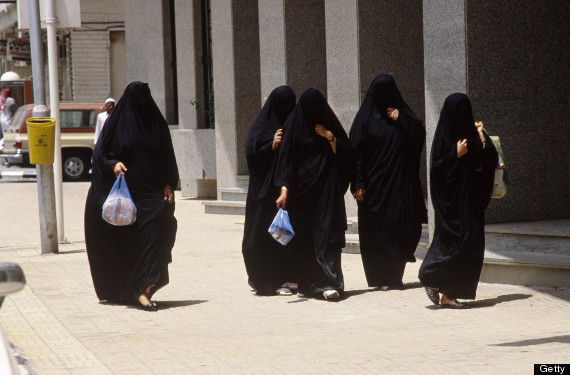Huffington Post UK is among many media outlets reporting on a planned day of driving in October. A link to the story is
here, and the text is pasted in below. The story is by Sara C. Nelson, and was published on 9/23/13.
A new campaign urging Saudi Arabian women to hold a “day of defiance” against the country’s driving ban is underway.
An online petition entitled
“Oct 26th, driving for women”, had, at time of press, amassed more than 8,000 signatures in just two days.
Literature on the website reads: “The campaign has no anti-Islamic or
political agenda for neither Islam nor the official laws of Saudi
prohibit women from driving.
 Saudi Arabian women are being urged to hold a 'day of defiance' against the country's driving ban
Saudi Arabian women are being urged to hold a 'day of defiance' against the country's driving ban
“Islam and the Basic Law of Saudi Arabia both ensure that all,
regardless of gender, have the right to freedom of movement. King
Abdullah has also stated the ban is only societal.”
It urges women and men alike to sign the petition and share it on
social media sites. Women are also encouraged to drive, have lessons and
post videos of themselves doing so.
Though it’s technically not illegal for women to drive in Saudi Arabia,
a fatwa issued in the '90s banned the act,
making it very difficult for women to get around town without a man,
CNN reports. A statement from the Ministry of Interior backed up the
decree.
Allowing women to drive in Saudi Arabia would also mean no more
virgins and an increase in homosexuality, according to academics at
Saudi Arabia’s highest religious council, Majlis al-Ifta' al-A'ala,
it was reported in the Telegraph in 2011.
More pornography would be used if women were allowed on the roads and
rates of prostitution and divorce would also rise, the report added.
The upcoming day of defiance follows the work of the
Women2Drive campaign,
which also calls for “freedom drivers” to take to the roads in protest.
The face of the movement is Manal al-Sharif, who was arrested in May
2011 after uploading a video of herself driving through the streets of
the city of Khobar in Saudi Arabia.
In 2005, Saudi Arabia’s Minister of the Interior, Prince Naif, told
the Saudi Press Agency that the controversy over driving is an
exaggerated one. He believes "that this is a controversy which has no
meaning because it is a social matter to be decided by society. It looks
like some people want to make it an issue, but it’s not," he said.
Because Saudi Arabia doesn’t have reliable public transportation,
women are wholly dependent on male relatives or hired drivers to go to
the supermarket, school, work or even the hospital.
Religious police
only
recently lifted a ban on females riding motorbikes and bicycles – as
long as they wear the full-length veil and are accompanied by a male
relative.
The Gulf Kingdom is governed by
Sharia law,
and it is illegal for Saudi women to travel abroad without male
accompaniment. They may only do so if their guardian agrees by signing a
document know as a 'yellow sheet' at an airport or border crossing.
In November 2012
it
emerged women were being electronically monitored with authorities
using SMS to track them and inform their husbands of their whereabouts.
It was only in 2011 that women were given the right to vote and run for office in municipal elections in 2015.
